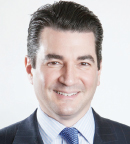The U.S. Food and Drug Administration (FDA) has announced that it has awarded 12 new clinical trial research grants totaling more than $18 million over the next 4 years to enhance the development of medical products for patients with rare diseases. These new grants were awarded to principal investigators from academia and industry across the country.

Scott Gottlieb, MD
“Developing a treatment for a rare disease can be especially challenging. Given the often small number of patients affected by certain very rare diseases, there can be limited markets for new treatments and as a result fewer resources devoted to researching these opportunities,” said FDA Commissioner Scott Gottlieb, MD. “The FDA is committed to doing its part to facilitate continued progress toward more treatments, and even potential cures, for patients with rare diseases…. By providing seed capital, these FDA-administered grants enable researchers to prove out important concepts. The FDA grants also provide some important recognition to promising development programs that ultimately can help researchers attract additional funding.”
The FDA awarded the grants through the Orphan Products Clinical Trials Grants Program. This program is funded by Congressional appropriations and encourages clinical development of drugs, biologics, medical devices, or medical foods for use in rare diseases. The grants are intended for clinical studies evaluating the safety and effectiveness of products that could either result in, or substantially contribute to, the FDA approval of products targeted to the treatment of rare diseases. Grant applications were reviewed and evaluated for scientific and technical merit by more than 100 rare disease experts, including representatives from academia, the National Institutes of Health, and the FDA.
Oncologic Conditions Under Study
The principal investigators and approximate funding amounts for the five oncologic conditions to be studied follow:
- Keith Lindor, MD, Arizona State University-Tempe Campus
Phase II study of oral vancomycin for the treatment of primary sclerosing cholangitis ($2 million over 4 years) - Yvonne Saenger, MD, Columbia University of New York
Phase I study of talimogene laherparepvec for the treatment for advanced pancreatic cancer ($750,000 over 3 years) - Eric Sorscher, MD, Emory University
Phase I/II study of Ad/PNP fludarabine for the treatment of head and neck squamous cell carcinoma ($1.5 million over 3 years) - Amy DeZern, MD, MHS, The Johns Hopkins University
Phase I/II study of CD8-reduced T cells for the treatment of myelodysplastic syndrome or acute myeloid leukemia ($750,000 over 3 years) - Yang Liu, PhD, OncoImmune, Inc.
Phase IIb study of CD24Fc for the prevention of graft-versus-host disease ($2 million over 4 years). ■

